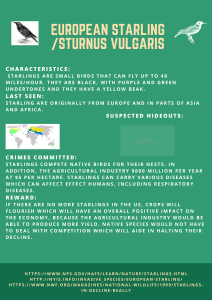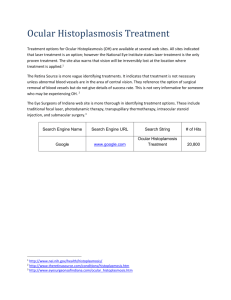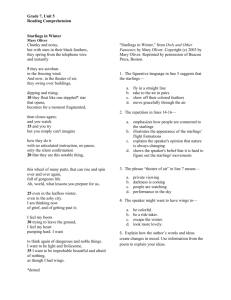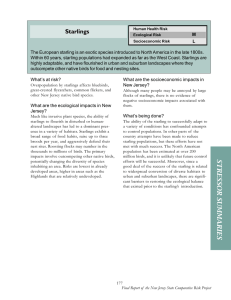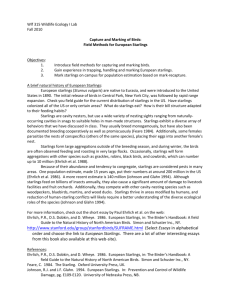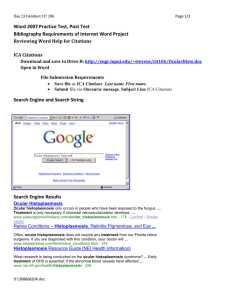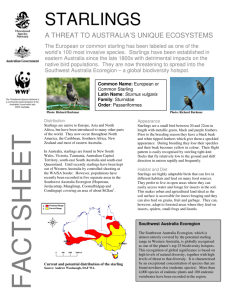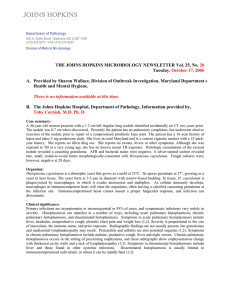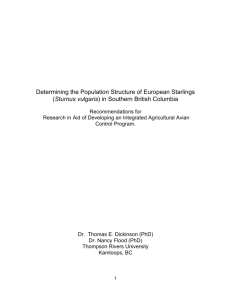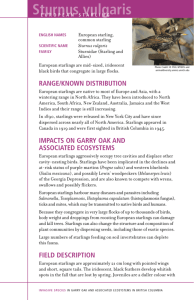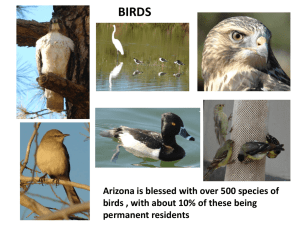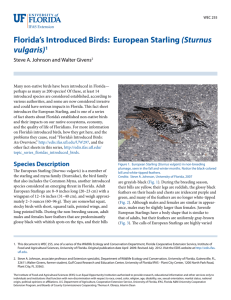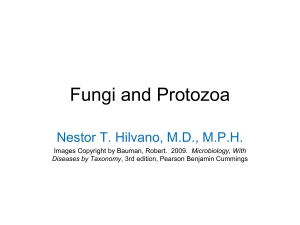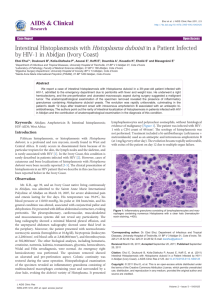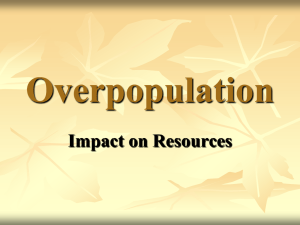Health risks from Starlings in Cheshire
advertisement
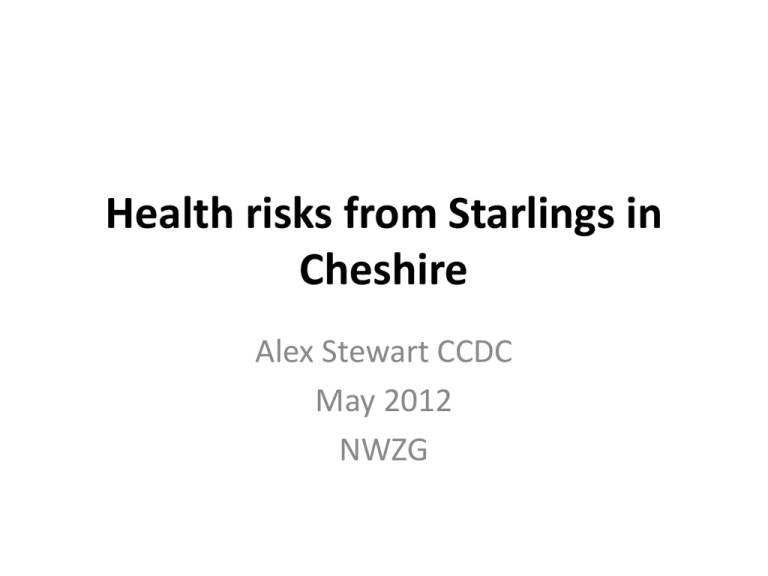
Health risks from Starlings in Cheshire Alex Stewart CCDC May 2012 NWZG Starlings • Passerine: • > ½ all bird spp • Perching birds Starlings Flock in larger numbers than any other UK passerine (possible exceptions rooks and jackdaws). Use winter roosts, fly at higher densities than other UK passerines, even pigeons. Problems / Complaints Issues • • • • • • • • Nuisance Allergy Aircraft strikes Road collisions Flock mass mortality Consume livestock fodder Physical spoilage of fodder by faeces Psychological issues? Diseases spread • Swine dysentery • Increase dissemination of salmonella – Stm DT 40 & 56 prevalent in garden birds at contaminated garden birds feeders – Humans get mild disease – BUT in NZ Stm DT160 can hospitalise – Starlings use feeders poorly • Avian pathogenic E. coli (APEC) • ?Avian Flu, PMV1, Newcastle disease, Yersinia, MTB avium, campylobacter, histoplasmosis…? Histoplasmosis???? • UK Student • Flu-like illness followed by a dry cough and mild exertional shortness of breath • Chest x-ray: – diffuse, miliary shadowing – later - persistent diffuse nodularity with suspicion of a thin-walled cavity • Pulmonary histoplasmosis confirmed by serology History • • • • • • • • 19 Jun to 20 Jul Biology trip to Uganda rainforest Studying insects, primates & bats Climbed in hollow tree full of bats once 1 Aug developed flu-like illness Diagnosed late August 9/24 students diagnosed Symptoms resolved spontaneously – did not require treatment Histoplasmosis H capsulatum • dimorphic fungus • remains in mycelial form at ambient temperatures • grows as yeast at body temperature in mammals In soil Spread • Birds cannot be infected • Birds do not transmit disease • Bird excretions contaminate soil • N enriches growth medium for the mycelium • Bats become infected & transmit via faeces Soil • Soil potentially infectious for years • Histoplasmosis outbreaks associated with construction & renovation that disrupt contaminated soil • SO - Cleaning under trees in UK? UK histoplasmosis? • Last indigenous case in 1950s UK starlings? • Unlikely to cause significant human disease
